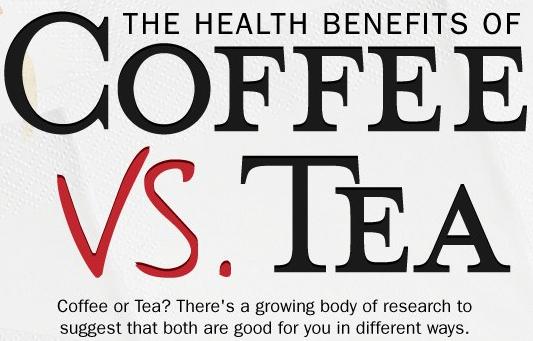Considering the amount of tea drunk around the world every day, the news that the drink can be good for you is welcome indeed. Recent research has indicated that drinking tea as part of a healthy diet and life style can help maintain a healthy body including a healthy heart.
The value of tea may be due, in part, to its antioxidants. Like fruit and vegetables, tea is rich in antioxidants. (In tea these are known as flavonoids). Antioxidants in the diet may help the body in its management of free radicals – highly reactive substances capable of causing damage to body cells.
If that's not enough to convince you that tea is worth trying, take a look at some of these fast facts. Green and black teas offer the same health benefits. Many people don't realize that black and green tea contain virtually the same amount of antioxidants. In fact, whether hot or cold, bottled or using a bag, tea is probably the healthiest drink around.
Drinking four cups of tea is rehydrating – not dehydrating as is often said – unless the amount of tea consumed at one sitting contains more than 250mg of caffeine (the equivalent of five cups of tea).
According to the Harvard Women’s Health Watch, tea provides a few tips to get the most out of tea-drinking:
Drinking a cup of tea a few times a day to absorb antioxidants and other healthful plant compounds. In green-tea drinking cultures, the usual amount is three cups per day.
Allow tea to steep for three to five minutes to bring out its catechins.
The best way to get the catechins and other flavonoids in tea is to drink it freshly brewed. Decaffeinated, bottled ready-to-drink tea preparations, and instant teas have less of these compounds.
Tea can impede the absorption of iron from fruits and vegetables. Adding lemon or milk or drinking tea between meals will counteract this problem.
Tea contains fluoride, which has a well-established link to dental health. Studies have shown that tea can provide up to 70% of the fluoride you need. It's also thought that antioxidants in tea may help inhibit the growth of the bacteria that cause plaque.
Tea without milk and sugar has virtually no calories. And in hot weather, it seems refreshing. This may be because it can raise your body temperature and momentarily cause an increase in perspiration, which cools the skin.
Teas such as Lipton are made from tea leaves rich in natural antioxidants, plus other good stuff your body loves. As for the taste, with a range covering hot and cold teas, and green and black varieties, it boosts your taste buds, as well as your well being.
Come sip with us....340-998-7405 / [email protected]
The value of tea may be due, in part, to its antioxidants. Like fruit and vegetables, tea is rich in antioxidants. (In tea these are known as flavonoids). Antioxidants in the diet may help the body in its management of free radicals – highly reactive substances capable of causing damage to body cells.
If that's not enough to convince you that tea is worth trying, take a look at some of these fast facts. Green and black teas offer the same health benefits. Many people don't realize that black and green tea contain virtually the same amount of antioxidants. In fact, whether hot or cold, bottled or using a bag, tea is probably the healthiest drink around.
Drinking four cups of tea is rehydrating – not dehydrating as is often said – unless the amount of tea consumed at one sitting contains more than 250mg of caffeine (the equivalent of five cups of tea).
According to the Harvard Women’s Health Watch, tea provides a few tips to get the most out of tea-drinking:
Drinking a cup of tea a few times a day to absorb antioxidants and other healthful plant compounds. In green-tea drinking cultures, the usual amount is three cups per day.
Allow tea to steep for three to five minutes to bring out its catechins.
The best way to get the catechins and other flavonoids in tea is to drink it freshly brewed. Decaffeinated, bottled ready-to-drink tea preparations, and instant teas have less of these compounds.
Tea can impede the absorption of iron from fruits and vegetables. Adding lemon or milk or drinking tea between meals will counteract this problem.
Tea contains fluoride, which has a well-established link to dental health. Studies have shown that tea can provide up to 70% of the fluoride you need. It's also thought that antioxidants in tea may help inhibit the growth of the bacteria that cause plaque.
Tea without milk and sugar has virtually no calories. And in hot weather, it seems refreshing. This may be because it can raise your body temperature and momentarily cause an increase in perspiration, which cools the skin.
Teas such as Lipton are made from tea leaves rich in natural antioxidants, plus other good stuff your body loves. As for the taste, with a range covering hot and cold teas, and green and black varieties, it boosts your taste buds, as well as your well being.
Come sip with us....340-998-7405 / [email protected]

 RSS Feed
RSS Feed

